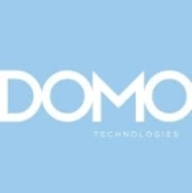

Domo and Oracle OBIEE are prominent contenders in the business intelligence and analytics software market. Domo seems to have an advantage in rapid deployment and ease of use, while OBIEE excels in handling complex analytics in enterprise settings.
Features: Domo offers rapid dashboard creation and intuitive data visualization, suitable for users with varying skills. Its Magic ETL allows efficient data management with drag-and-drop capabilities and integrates with multiple data sources. OBIEE provides robust enterprise-level features like advanced data modeling, detailed insights through complex analytics, and supports structured and unstructured data.
Room for Improvement: Domo needs improvements in scalability for large datasets and better collaborative features. It also requires enhancements in visual analytics options. OBIEE struggles with performance on large datasets and lacks intuitive design for end-users. Enhancements in ease of use and better integration with non-Oracle systems are necessary.
Ease of Deployment and Customer Service: Domo provides deployment options including public and hybrid cloud, reducing dependency on IT infrastructure and offers highly responsive customer service. OBIEE has a more traditional setup, often configured for on-premises but supports cloud deployments in recent versions. Its customer service seeks improvement in problem resolution and support consistency.
Pricing and ROI: Domo is praised for flexible pricing structures tailored to organizational needs, although some view it as expensive. It offers high ROI through efficient data integration and decision-making. OBIEE, while higher in cost, reflects sophisticated capabilities, with discounts being negotiable. Both deliver substantial ROI by enhancing business intelligence capabilities, with Domo noted for quicker returns due to ease of use.
While they eventually provide the correct answers, their support for smaller customers could be improved.
The tendency to route users to sales personnel with limited technical expertise detracts from the support experience.
Sigma, which is written for Snowflake, scales more easily than Domo.
While Oracle OBIEE is scalable, it is more of a niche product designed to work specifically with Oracle systems.
End users require a license to run their own reports and dashboards, which are fairly expensive.
Oracle OBIEE has a steep learning curve compared to tools like SQL Server or Power BI.
Domo is expensive compared to other solutions.
Oracle OBIEE is quite expensive, especially when compared to Microsoft's solutions.
I have been using it for four years and have been able to extract the information I need from it.
A valuable feature of Oracle OBIEE is its ability to automate some tasks, such as invoice analysis, saving a significant amount of clerical work.


Domo is a cloud-based, mobile-first BI platform that helps companies drive more value from their data by helping organizations better integrate, interpret and use data to drive timely decision making and action across the business. The Domo platform enhances existing data warehouse and BI tools and allows users to build custom apps, automate data pipelines, and make data science accessible for anyone through automated insights that can be shared with internal or external stakeholders.
Find more information on The Business Cloud Here.
Oracle OBIEE (Oracle Business Information Enterprise Edition) is a business intelligence (BI) tool developed by Oracle. OBIEE will gather, store and analyze an organization's network data and compile the information to create reports, dashboard graphs, and performance analysis. OBIEE’s unique platform allows clients to discover new awareness and improve the speed of completing important business decisions by providing robust visual tools and intuitive realization coupled with the latest unmatched enterprise analytics available. OBIEE helps IT enterprise organizations to experience an intelligent view of all enterprise data from across all sources and empowers trusted users with increased levels of reliable, dependable access, interaction, and the ability to utilize the data to increase the overall effectiveness and productivity of the organization.
OBIEE provides unique immediate mobile access, intuitive dashboards, robust reporting, real-time alerts, metadata search, procedure management, direct access to Big Data resources, enlightened in-memory computing, and seamless systems management processes. These features seamlessly combine to make Oracle OBIEE a complete, top-of-the-line broad solution that is cost-effective, minimizes TCO, and provides a competitive, quick ROI for the entire organization.
Oracle OBIEE Top Features
Reviews from Real Users
Sandeep V., Process System Engineer at a comms service provider, tells us, “This solution is very easy for people who are building ad-hoc things. It's an enterprise solution so it can be deployed for a lot of users. There are some great new features that come with the 12c like data visualization, desktop BI Publisher, automation, and interactive dashboards. The product has good features. “
A user who is a CEO at a consultancy relates, “The most valuable feature is the visualization. The data warehousing, data storage, and data wrangling are all features that are in there, and it's one of the better products out there. A good thing is that for large datasets, it's very stable, especially when you have an Oracle database.”
A user who is a Principal Business Intelligence Architect at a computer software company suggests, "It is very biased towards Oracle infrastructure. One of the major red flags we have at the moment against Oracle is that it doesn't support deployment on other cloud providers. We're quite heavily vested in AWS as our infrastructure, and Oracle is yet to formally support deploying on those virtual infrastructure instances. That's quite disappointing, and it also cuts them out of over 70% of the market."
We monitor all BI (Business Intelligence) Tools reviews to prevent fraudulent reviews and keep review quality high. We do not post reviews by company employees or direct competitors. We validate each review for authenticity via cross-reference with LinkedIn, and personal follow-up with the reviewer when necessary.